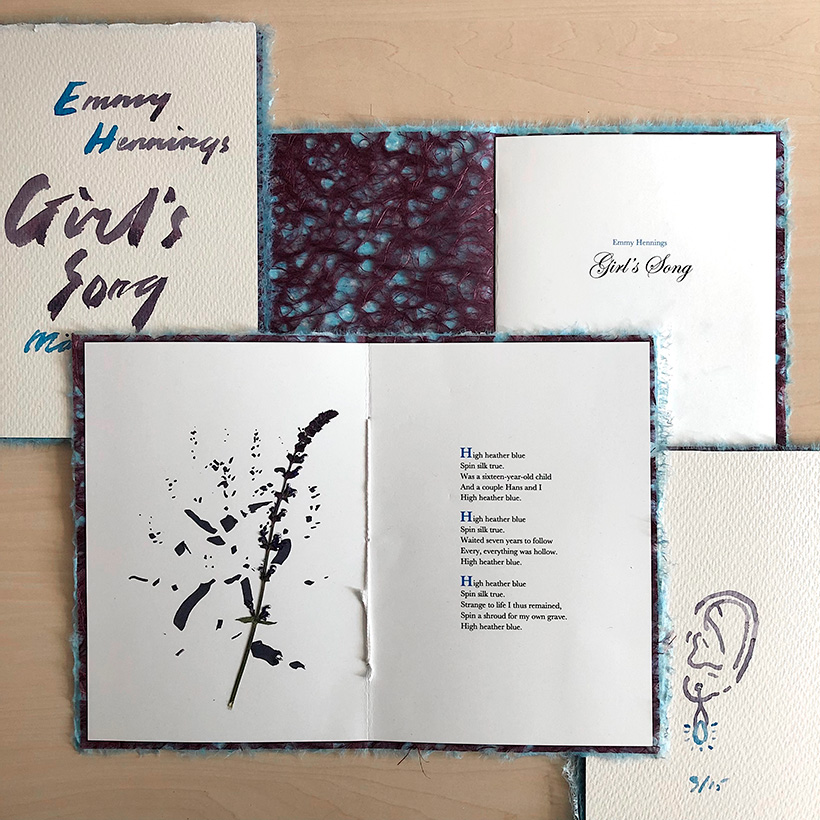 New Sea Urchin chapbook:
New Sea Urchin chapbook:
Emmy Hennings was born Emma Maria Cordsen in Flensburg, Germany in 1885. After having attended school and worked as a maid there, she married an actor and joined his itinerant company at the age of 18. Only one year later she divorced the actor, with whom she had a daughter, and started a wandering existence as a solo performer, leaving her child in the care of her parents in Flensburg. While working at a cabaret in Berlin in 1909 she met journalist and writer Ferdinand Hardekopf, with whom she travelled to France the following year. She separated from Hardekopf after he had forced her into prostitution and returned to Germany, where she made a scanty living as a performer in Berlin and Munich. At the Munich café Simpl, in those days a hotbed of the avant-garde, she met Hugo Ball and many other artists in 1913 and, after having been incarcerated for theft in 1914, joined Ball in his exile to Zürich, where in 1916 they co-founded Cabaret Voltaire, generally considered the cradle of Dada. At the short-lived Cabaret Voltaire Emmy Hennings performed each night as a singer, storyteller, dancer and puppeteer until the cabaret’s demise later in 1916. She married Hugo Ball in 1920 and, together with her husband, turned away from Dada to embrace a mystic form of Catholicism. The couple became close friends with Hermann Hesse, whose biography Hermann Hesse. Sein Leben und sein Werk was written by Ball in 1926 and 1927. After Ball’s death in 1927 Hennings lived in Magliaso, Switzerland until her own death in 1948.
Mädchenlied, no doubt one of the songs that stem from Emmy Hennings’ Cabaret Voltaire period, was originally published in 1917 and has now been published by Sea Urchin in an English translation by Ben Schot. Each of the 15 copies of the tragicomical Girl’s Song has a hand drawn cover and a dried heather flower as a fragile tribute to this siren of the avant-garde. Order now →
